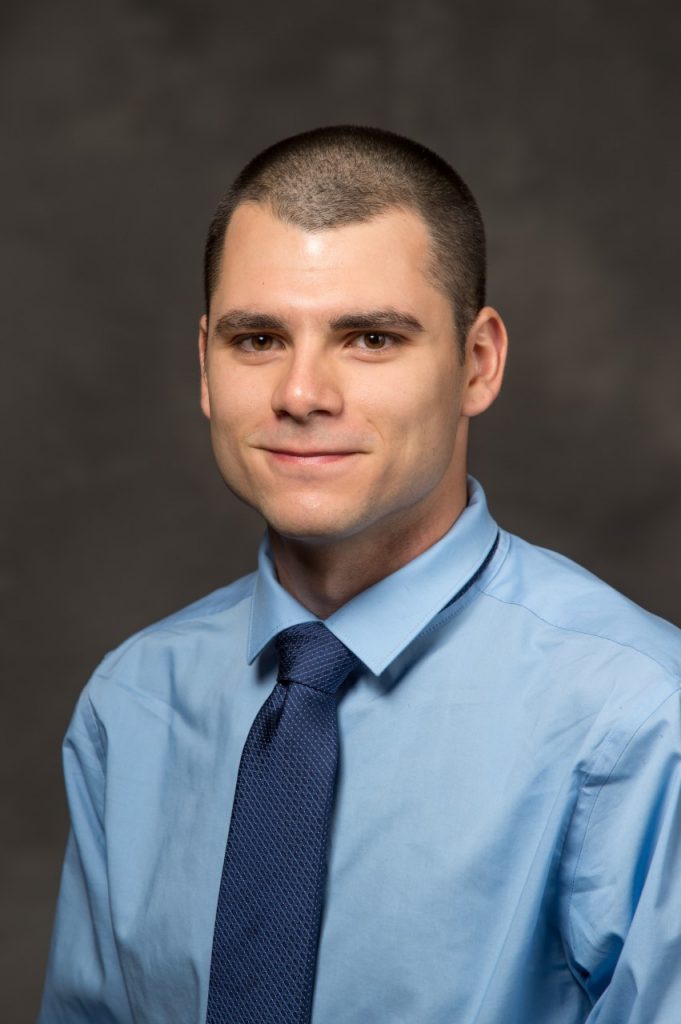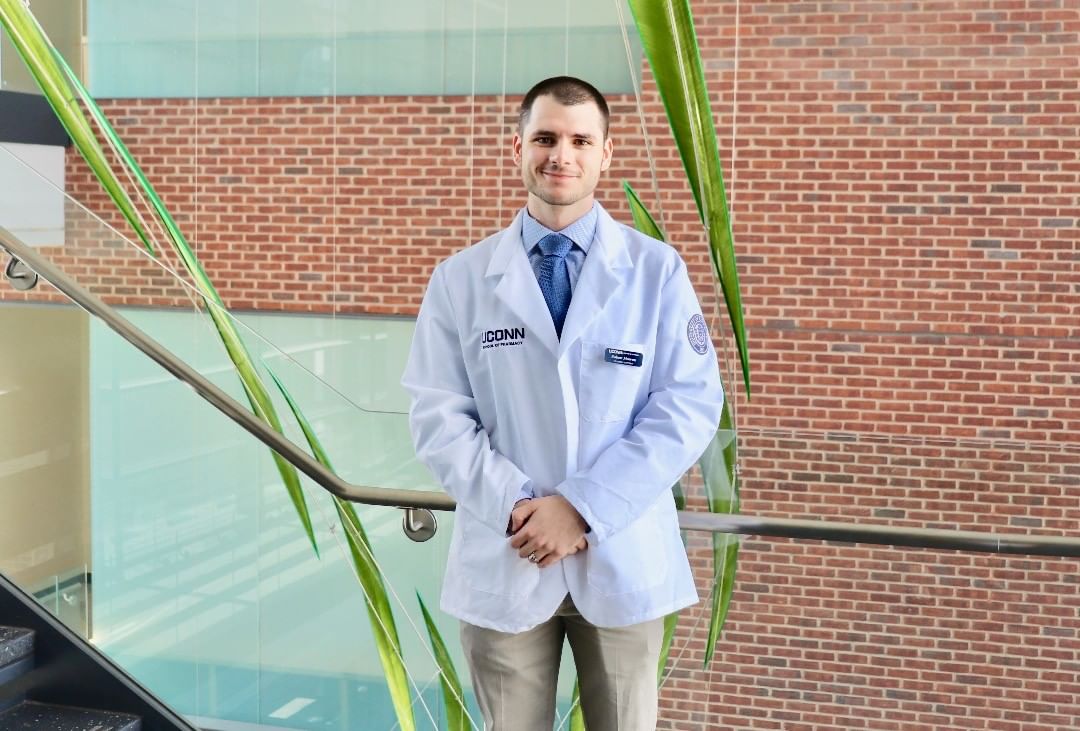Robert Mownn ’21 (Pharm.D.) is the recipient of the 2019 Karl A. Nieforth Pharmacy Student Research Award. His research centers on the neurobiology of drug addiction, and how a class of proteins called epigenetic readers contribute to cocaine-seeking behaviors.
In the laboratory of Assistant Professor of Pharmacology and Toxicology Gregory Sartor, Mownn will be helping to determine if these readers are altered in specific neuronal populations following cocaine use. The ultimate goal of the research is to identify novel molecular mechanisms that drive drug use and drug-seeking behaviors, which may ultimately lead to new and effective treatment options for patients suffering from addiction.
For Mownn, the quest is personal. His family has felt the repercussions of addiction and the far-reaching effects when a loved one is on the difficult road to recovery.

“I’ve seen the effects of addiction up close,” says Mownn, “and from the time I was a kid I knew I wanted to do something about it. I really like research and when I was getting my Bachelor’s degree – a dual major in chemistry and psychology from Western Connecticut State University – I had a chance to work in a lab doing malaria research. I loved that and wanted to continue doing bench science when I came to UConn as a pharmacy student.”
Sartor says that not only does addiction wreck havoc on individuals and their families, he also points out that Substance Use Disorder (SUD) costs the U.S. economy over $700 billion annually, and there are currently no FDA-approved medications for multiple forms of SUD, including cocaine use disorder.
He says, “With the Nieforth award, Robert will have a unique opportunity to identify novel molecular targets involved in cocaine-seeking behaviors. This experience will provide him with a new perspective and appreciation for neuroscience research and SUD drug discovery.”
Mownn, who hails from Shelton, Connecticut, is not dissimilar from other students who come to the School of Pharmacy with specific goals in mind. Sometimes, however, once they actually begin their studies, they may be a little overwhelmed by the variety of possibilities before them. Associate Professor of Pharmacology and Toxicology Brian Aneskievich says that Mownn found himself in that position.
“In Robert’s case, he seemed uncertain if he’d be competitive for the award since he’d just started working with Dr. Sartor,” Aneskeivich says, “but as we talked, I learned he had done protein chemistry research for his undergraduate degree at WCSU and it was clear that he thought that kind of first-hand experience was vital to his overall educational goals. He was very excited to have found a research home here at the UConn School of Pharmacy and rather than feeling he was a novice on a new project, I encouraged him to think about the transferable skills he had from his previous project – e.g. defining a research goal, communicating its importance, analyzing and reporting data – and bring those skills together with his enthusiasm for the new project to the Nieforth Application.”
Aneskievich thinks the Nieforth summer research award is a great opportunity for Pharm.D. students to pursue their diverse research interests because it supports efforts with faculty from both School of Pharmacy Departments — Pharmacy Practice and Pharmaceutical Sciences — and thus covers a wide range of preclinical and patient-oriented research.
Mownn’s proposal was independently reviewed by four faculty and was selected for support because of its clarity, experimental organization, and for the possibility of advancing basic research into new modes of treating drug addiction.
He’s excited about working in Sartor’s lab because he is inherently a team player. “I really do want to have everyone win,” Mownn says, and he adds that he feels the best approach to solving problems such as addiction and other psychiatric issues is an interdisciplinary one where ideas stemming from multiple sources will ultimately result in solutions.
The Karl A. Nieforth Pharmacy Research Award is named after former Dean of the School of Pharmacy, Karl A. Nieforth. It is offered to PharmD students based on their project’s significance to the pharmacy field, the scope of their work, and how the research fits into their plans for their future in the field of pharmacy. Students receive a summer stipend and funds to cover some of their research-related expenses.



